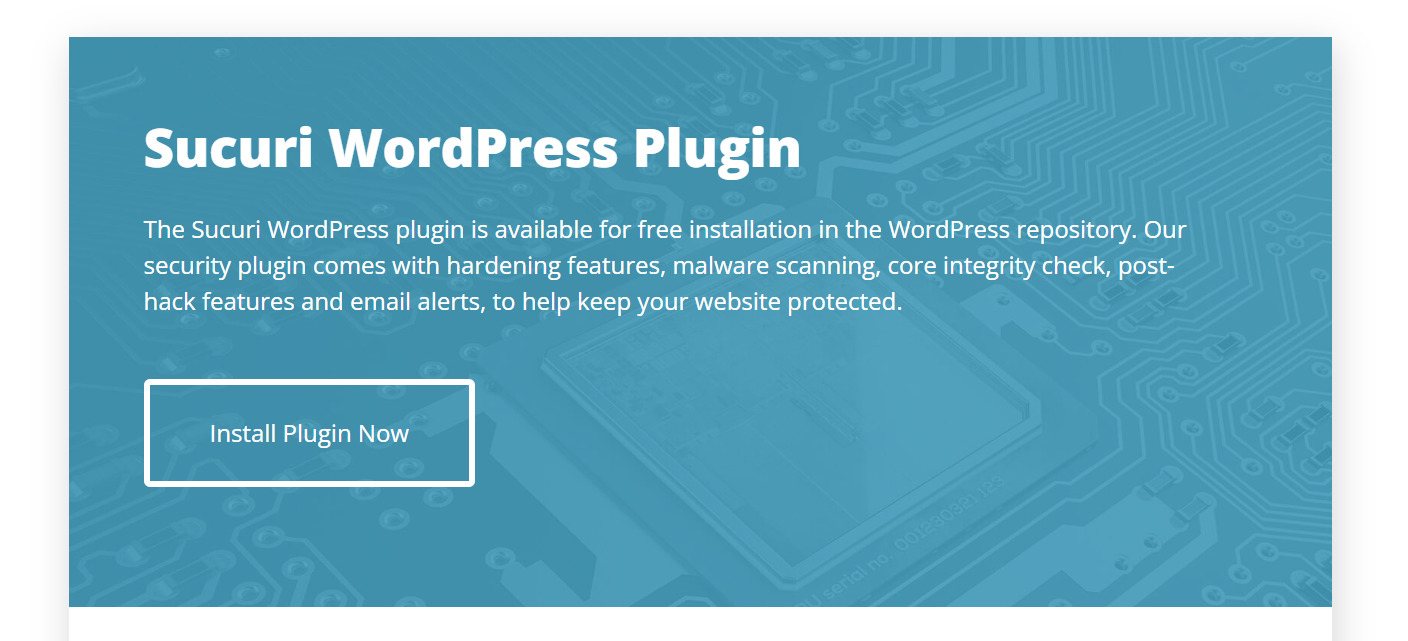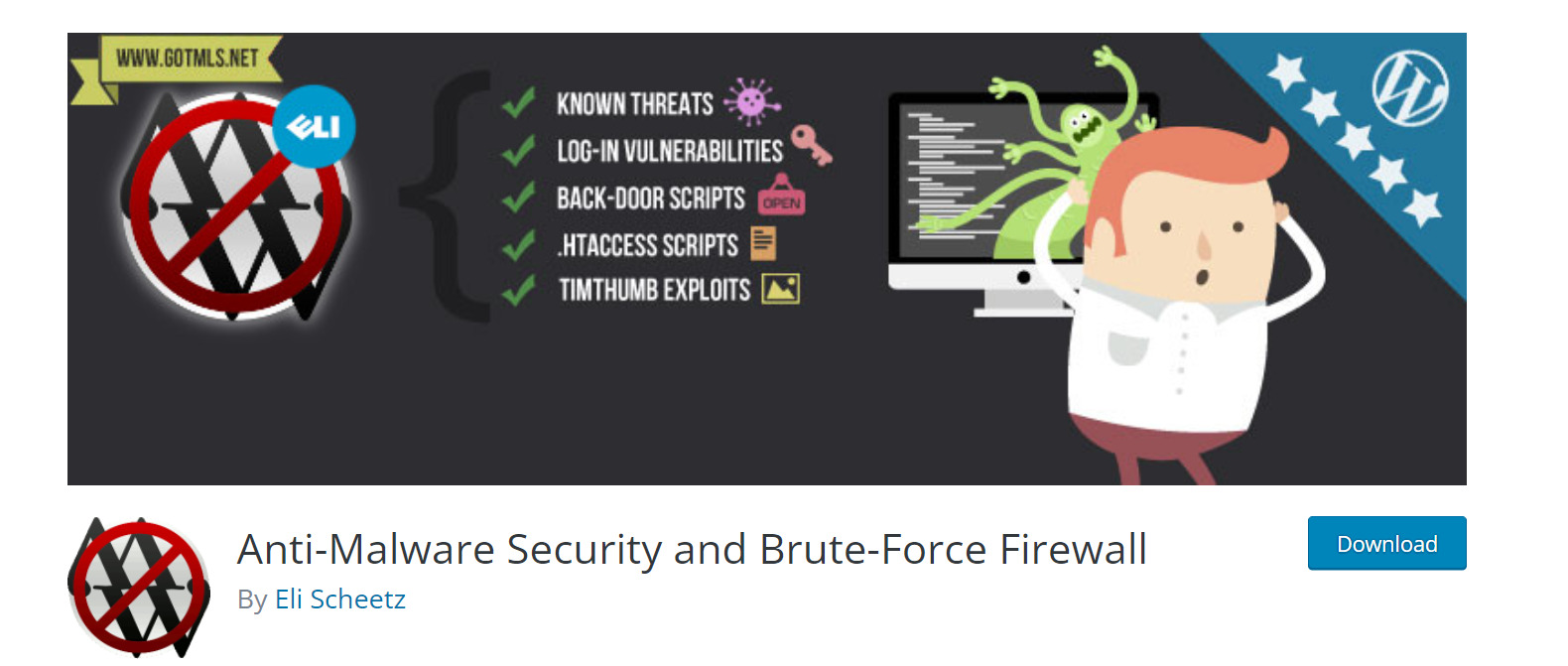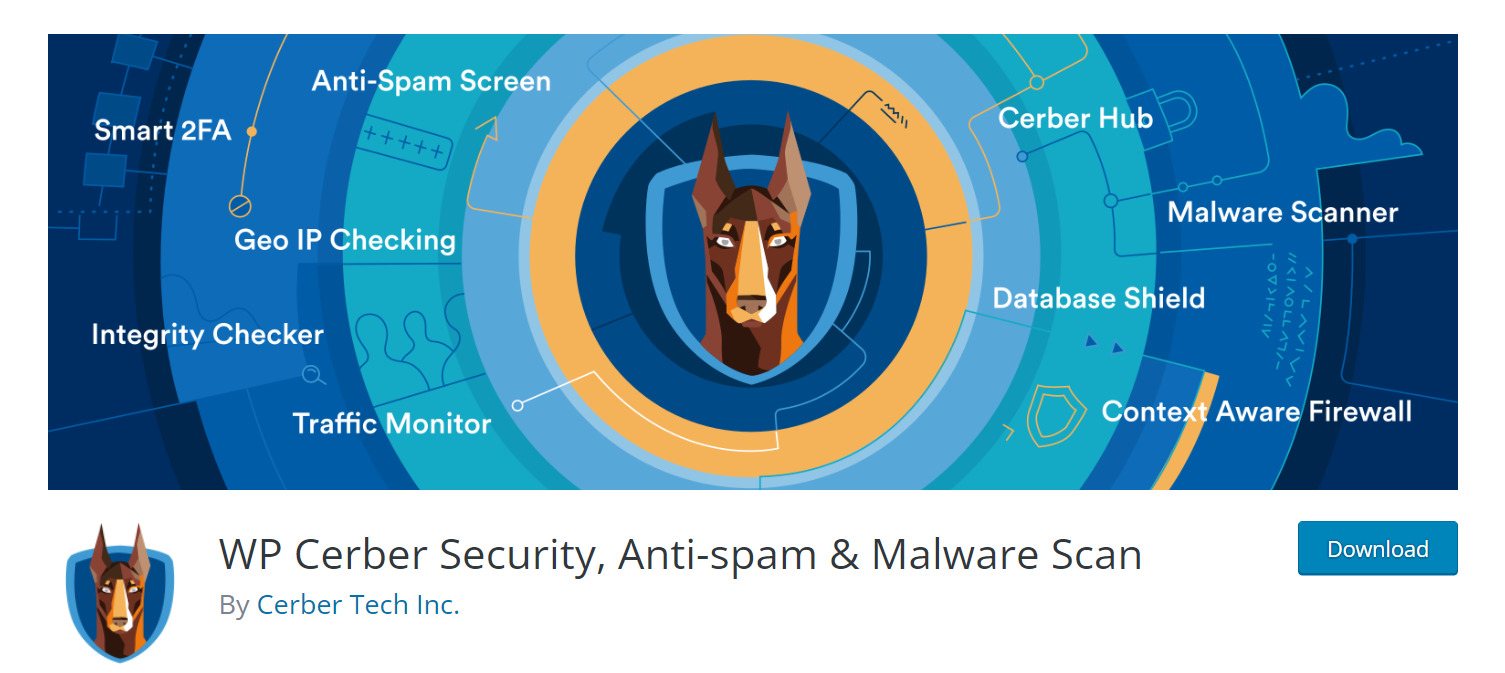If you’re a new WordPress user, you’re probably asking yourself, “Do I need a WordPress security plugin?” The answer is a resounding yes, especially if you’re not code-savvy enough to tackle the Hardening WordPress section of the WordPress Codex.
Web security is a big deal. WordPress security plugins help you protect your investment of time and money to create your website.
In not protecting your investment, you risk losing parts of your website or all of it. Whether it is a website geared to selling items online, or an informational website to get people to come to your brick-and-mortar location, your website needs to be up to help your business make money. It can be a real nightmare when your website goes down because it was hacked.
A WordPress security plugin can help reduce the chances of your site being hacked.
Is a security plugin necessary for WordPress?
Although there are plenty of reasons to manually code security provisions, WordPress security plugins exist for a reason.
You’re theoretically able to implement any security aspect manually, but in many cases, you’ll have to do more than simply add lines to a core file. In most cases, a dedicated WordPress security plugin can be used to do the hard work, while simple fixes such as amending the database prefix can be handled without a plugin.
If your technical skills are limited, you may be better off using a quality all-in-one plugin such as Sucuri Security, Wordfence Security, or iThemes Security.
Features to look for in WordPress security plugins
Before listing some of the top WordPress security plugins, you really need to know some of the features that you want to look for when choosing the right security plugins for you.
- Has a strong malware scanner– There are so many ways to be hacked, and if the scanner on your WordPress security plugin doesn’t address scanning for several types of hacks, then it is useless in helping to detect anything that doesn’t belong on your website.
- Includes a Web Application Firewall or some type of reliable firewall– Some plugins might not offer this feature for free, but a firewall really helps in blocking malicious actors from damaging your website. It’s a premium feature that’s worth paying for.
- Emphasizes strong password and logins– Your security plugin should help educate you a little bit on what you need, especially basic things like having a strong username, password, and the ability to log in in more security. A security plugin that has two-factor authentication can help you implement a more secure way to log in on your website.
- Can help repair files that might be compromised– Malware can be difficult to spot and it can be even hard to remove. Make sure that if your website is infected with malware, your security plugin will help you get rid of it.
- Checks your website against Google’s Safe Browsing list– Google blacklists sites that are infected with malware to stop its users being exposed to cyberthreats. If you’re on that list, you could lose traffic. If your security plugin is able to notify you that your site has been blacklisted by Google, you’ll be able to take steps to remedy the situation.
- The plugin actually works!– Yes, some people choose older plugins that are no longer compatible with their current version of WordPress. If your WordPress security plugin isn’t working, then you’re sitting there with a sign that welcomes an eventual bot attack or hacking.
Which is the best WordPress security plugin?
The best WordPress security plugin depends on your needs and your technical requirements. Below are eight of the best WordPress security plugins for you to choose from. Some of these can be stacked together, but others should be used alone. It’s important to read each plugin’s description, and their features, to pick one you’re comfortable with.
Important note: If you use GoDaddy’s WordPress hosting, you’ll already have Malware scans as the Sucuri plugin comes preinstalled.
- Sucuri Security
- Wordfence
- iThemes Security
- GOTMLS/ Antimalware and Brute-Force Firewall
- Shield Security
- All In One WP Security & Firewall
- Cerber Security & Limit Login Attempts
- WP Hide & Security Enhancer
As a note, all of the plugins listed below have hundreds of thousands of users who have attested to their trustworthiness.
1. Sucuri Security

Sucuri Security is a highly popular WordPress security plugin with the following features:
- Malware scanning
- Email alerts
- Offers a website firewall for premium users (paid upgrade)
- WordPress core file integrity checks
- Post-hack tools
2. Wordfence
Wordfence has more than 2 million active installs across the world. The free version of the plugin includes:
- A web application firewall
- Malware scanning
- Two-factor authentication
- Protection from brute-force attacks
- Vulnerability alerts
More advanced features are available with the premium versions of the plugin.
3. iThemes Security
iThemes Security is a premium WordPress security plugin and includes:
- Site scanning
- Vulnerability patching
- Trusted devices
- Session hijacking protection
4. Antimalware and Brute-Force Firewall

Anti-Malware Security and Brute-Force Firewall, also well known in the WordPress community as GOTMLS, is respected for its powerful malware scanner. This is a plugin that might be more suitable for tech-savvy users, but it offers some great features for free.
5. Shield Security
Shield Security has a lot of different options for securing and hardening websites. Here are some of the features:
- Two-factor authentication
- Renaming WordPress login URL
- Brute force protection
- File integrity checking
- User monitoring
- Email reporting
- Firewall
6. All In One WP Security & Firewall
All In One WP Security & Firewall is another well-established WordPress plugin. Its features include:
- User login security
- User registration security
- Database security
- Firewall functionality
- Security scanner
These are just a handful of the great WordPress security plugins available to help protect your website. Do your research, pick one or more security plugins to try, and start taking a more proactive approach to WordPress website security.
7. Cerber Security

Cerber tracks user and intruder activity and sends email, mobile and desktop notifications. Includes IP blocklisting and allowlisting along with built-in reCAPTCHA for protecting registration, comments and WooCommerce and WordPress forms.
8. WP Hide & Security Enhancer
WP Hide is another security plugin for WordPress offers an easy process to completely hide your core files, theme and plugins path from being shown on the front end. It allows you to change default Admin URLs for wp-login.php and wp-admin to something else, while also, not announcing to the world that your site is on WordPress.
Protecting your website with GoDaddy Website Security
If you’re not comfortable with the idea of installing a WordPress plugin (or you want to protect a non-WordPress site) then consider using GoDaddy Website Security.
Our Website Security tool includes a firewall, malware scanning and site cleanup. You also get an SSL certificate as part of the deal. An SSL certificate protects data as its transferred between users and your website, so it’s a must have if you’re taking payments or people’s personal details.
The Advanced and Premium plans also include a website backup service. Backups are important because they can help you recover quickly if your site is hacked or is hit by other problems.
Before you install any plugins
Some of the intermediate and advanced features of these security plugins might break your site if they conflict with other plugins or themes already on your site.
Always do a thorough backup before installing any new plugins.
Advanced features might not work correctly on your site if your hosting provider’s configuration doesn’t support them, either in native configuration or if it doesn’t have the RAM necessary to power these types of plugins. Before installing any WordPress security plugin check:
- It’s compatible with your hosting plan
- You have sufficient RAM to install it
After installing security plugins
Plugins alone can’t guarantee you will never be hacked. But combined with best practices, WP security plugins will hinder hackers and reduce your risk. Make an effort to stay informed to keep your site safe, as new security gaps are discovered all the time.
Installing a security plugin or two on your WordPress website doesn’t give you an excuse to not understand the rules of the game.
Remember to review support and version compatibility before installing any WordPress plugin on your website.
This article also contains content by Tom Rankin






